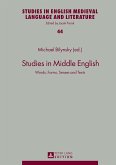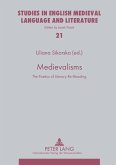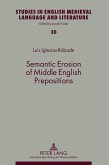The book examines four Middle English narratives of the Trojan War as examples of the medieval appropriations of classical history and classical narrative traditions as a discourse related to issues of contemporary politics and morality. The medieval stories of the fall of Troy are viewed as educational texts offering advice on moral and political conduct related in their aims to the genre of the medieval speculum. Four major verse narratives of the history of the Trojan War composed in Middle English at the end of the fourteenth and the beginning of the fifteenth century are discussed: the anonymous Gest Hystoriale of the Destruction of Troy, the Laud Troy Book, the Seege of Troye and John Lydgate's Troy Book.
"... this book is a welcome contribution to a burgeoning field of scholarship and an ideal introduction to and point of reference for the advisory role played by the Trojan legend in late fourteenth- and early fifteenth-century English Literature." (Emily Wingfield, Archiv für das Studium der neueren Sprachen und Literaturen 251.1, 2014)








